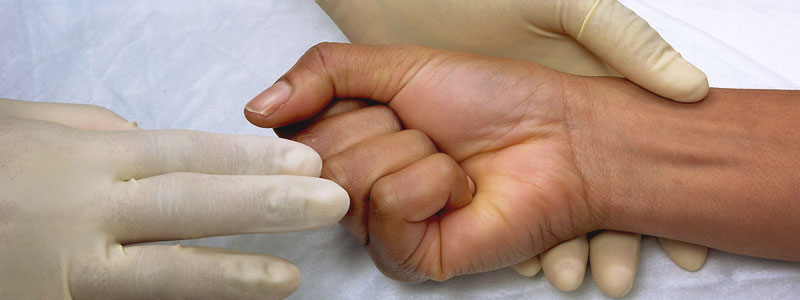How to Protect Yourself from Medical Malpractice in Evansville

The last place you want to suffer from another person’s mistakes is in a medical facility. However, everyone makes mistakes occasionally, even doctors, and there’s a difference between an accident and negligence.
Huge consequences exist for healthcare professionals who neglect their patients or intentionally deceive them. You may be aware of blatant examples of negligence, like a surgeon who leaves a piece of equipment inside the patient or a physician who prescribes a medication he knows the patient is allergic to.
However, these rare and serious complications are not the only types of medical malpractice. For example, misdiagnosing conditions or failing to diagnose them altogether can also be a form of malpractice.
An infamous case emphasizes the damage one doctor can do through misdiagnosing patients. A Detroit doctor incorrectly diagnosed over 500 patients and prescribed dangerously strong treatments for mild forms of cancer. One man passed away because the doctor prescribed the wrong chemotherapy for his cancer.
This man grew greedy for the insurance money many used to pay for treating what patients thought were life-threatening diseases. Prosecutors called him the “most egregious fraudster in the history of this country.”
If diagnosing nonexistent diseases is one end of the malpractice spectrum, failing to diagnose conditions is at the other end. Earlier in 2017, a Chicago hospital patient sued her physicians for failing to diagnose a blood clot in her leg that later caused complications. She had to have the limb amputated.
Fortunately, you can help avoid becoming the subject of these horror stories by taking precautions and asserting your rights as a patient.
Ways to Protect Yourself

While under a hospital’s care, it is their responsibility to keep you safe and treat you correctly for the condition you have. However, because medical malpractice can affect anyone, it’s helpful to know these strategies to reduce the risk of doctors taking advantage of you.
Communicate
Give your doctor a full view of your symptoms for the best chance of a correct diagnosis. Holding back information will only make their job harder and lower their confidence in prescribing treatment with little evidence.
Ask Questions
Though you may not understand every medical detail of your diagnosis, it is your doctor’s responsibility to explain your condition thoroughly. Ask about all possible treatment options and how your condition will change your lifestyle. In case of sudden, shocking diagnoses, ask for another physician’s opinion on your case.
Speak Up
Discussing treatment options or prognoses with your doctor can be intimidating and uncomfortable. However, this is the best time for you to leverage your rights as a patient to tailor a plan that works for you. This is especially important if the conversation is shrouded in confusing medical terminology: ask your doctor to clarify what he or she means.
Be Proactive
In the course of your treatment or even during an exam, keep your doctor informed of changes in your health, behavior, or mood. This will help address issues as they arise, rather than waiting until problems progress into more serious conditions.
Bring a Friend
If you’re in pain or are worried about a shocking diagnosis, bring a friend for support and to help clarify information. A second pair of ears will retain important details that might slip your memory and can talk with you throughout treatment about your health.
Evansville Medical Malpractice Attorneys On Your Side
Medical professionals are duty-bound to serve others and do no harm. This is part of what makes medical malpractice cases so horrible; doctors betray their patients’ trust in highly personal and delicate situations. If you or a loved one has experienced medical malpractice, contact Hensley Legal Group today.
Available 24/7
Free Case Review
You won’t pay any fees until we win your case.
It’s easy - you can: